
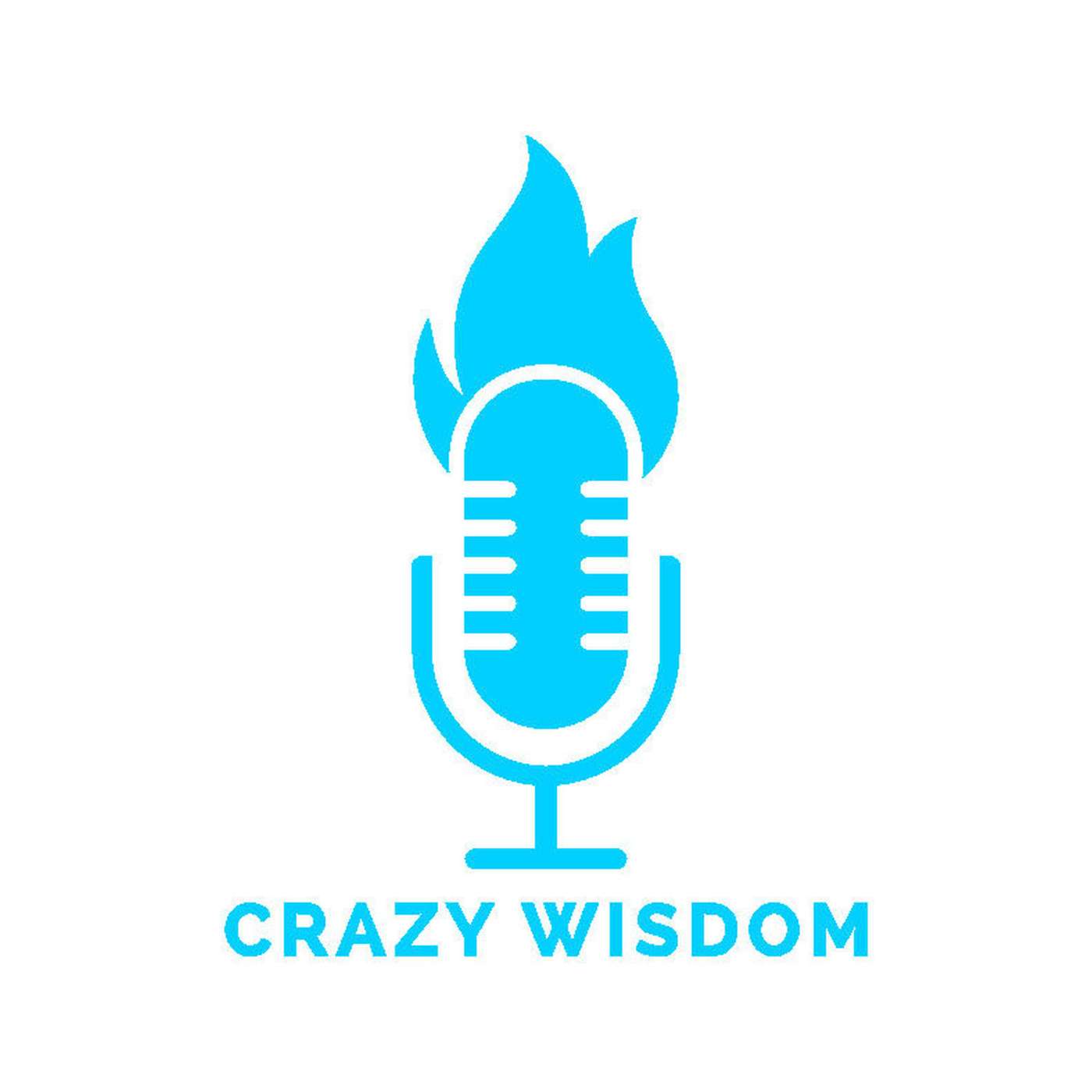
Crazy Wisdom
Stewart Alsop
In his series "Crazy Wisdom," Stewart Alsop explores cutting-edge topics, particularly in the realm of technology, such as Urbit and artificial intelligence. Alsop embarks on a quest for meaning, engaging with others to expand his own understanding of reality and that of his audience. The topics covered in "Crazy Wisdom" are diverse, ranging from emerging technologies to spirituality, philosophy, and general life experiences. Alsop's unique approach aims to make connections between seemingly unrelated subjects, tying together ideas in unconventional ways.
Episodes
Mentioned books

Dec 2, 2024 • 1h 6min
Episode #414: AI vs. Human Potential: Stewart Alsop III and Alexander Explore What’s Next
On this episode of the Crazy Wisdom Podcast, host Stewart Alsop chats with Alexander, a Gen Z innovator passionate about technology, particularly AI and blockchain. Together, they explore Alexander’s creative approach to tackling challenges like reading dense white papers, the dynamics of AI in software engineering, and the philosophical implications of emerging tech, from blockchain’s elegant simplicity to AI's transformative potential in reshaping industries. Alexander also shares insights from his journey in crypto and smart contract development, providing a glimpse into how technology and human ingenuity intertwine in the modern era. For more, follow Alexander on X at @AlexanderTw33ts.Check out this GPT we trained on the conversation!Timestamps00:00 Introduction to the Crazy Wisdom Podcast00:32 Exploring White Papers and Crypto04:55 The Gen Z Advantage and Social Media07:38 The Power of Time-Lapse Videos11:18 Understanding Bitcoin and Blockchain14:27 Smart Contracts and AI20:56 The Future of AI and Software Development32:02 The Role of Humans in the Future32:56 The Concept of Singularity33:52 Technological Merging and Its Implications35:34 The Impact of AI on Society00:43 The Future of Learning and AI55:02 Navigating the Job Market with AI01:02:09 The Human Element in a Tech-Driven World01:04:15 Conclusion and Final ThoughtsKey InsightsThe Role of AI in Learning and Productivity: Alexander highlighted how AI, particularly large language models (LLMs), has become a crucial tool for learning and productivity. By using AI, tasks like coding, debugging, and understanding complex documents, such as white papers, have become more accessible. This shift emphasizes the importance of understanding how to effectively prompt and interact with AI to maximize its capabilities.Blockchain’s Simplicity and Significance: The conversation revealed the elegant simplicity of blockchain technology, particularly Bitcoin. Despite its technical complexity at first glance, the core mechanisms—like the transaction ledger—are remarkably straightforward. This simplicity, combined with the groundbreaking nature of decentralized systems, positions blockchain as both a financial innovation and a conceptual work of art.Challenges for Gen Z with AI and Attention: Alexander discussed the unique challenges his generation faces with attention spans shaped by the internet and social media. While this digital immersion offers advantages, such as a natural aptitude for navigating tech tools, it also creates hurdles, like focusing on dense materials. He shared how creative approaches, such as time-lapse recordings for accountability, can transform learning into an engaging and rewarding process.The Future of Software Development Careers: With AI increasingly capable of performing technical tasks, the demand for junior developers may dwindle. Alexander advised aspiring developers to embrace entrepreneurship, leveraging AI to build their own projects. This approach not only enhances practical skills but also positions them as creators in a competitive market where the definition of “developer” is rapidly evolving.The Evolution of Distributed Cognition: The episode touched on how technology has transformed distributed cognition, from early written communication to the internet and now AI. Platforms like social media are already curating personalized worlds for users, but AI’s advancement could make these experiences even more immersive, raising questions about individual agency and shared reality.Navigating the Technological Singularity: Both Stewart and Alexander reflected on the concept of the technological singularity—the point at which human understanding can no longer predict future technological developments. They discussed its philosophical implications, likening it to a black hole where no one can see beyond its event horizon, emphasizing the profound uncertainty it brings to humanity’s trajectory.Balancing Human Connection in an AI-Driven World: The conversation underscored the importance of human connection and shared experiences amidst increasing AI-driven customization. While AI can create tailored virtual worlds and digital interactions, Alexander and Stewart noted the enduring value of real-world activities like engaging with nature, forming authentic relationships, and fostering creativity in a rapidly evolving technological landscape.
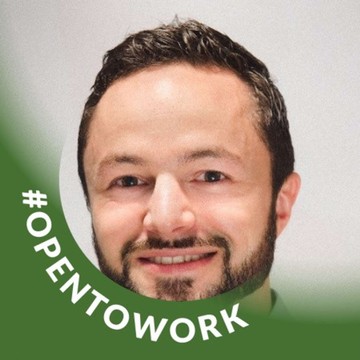
Nov 29, 2024 • 1h 11min
Episode #413: Rewiring Our World: Insights on Power Systems and Technology
On this episode of Crazy Wisdom, host Stewart Alsop is joined by Dr. David Ulrich Ziegler, an independent consultant specializing in the intersection of cyber and physical utility systems. The conversation spans a range of topics including the intricacies of power grids, the historical evolution of electrical systems, and the future of energy, touching on nuclear power, solar panels, and the emerging role of AI in managing these critical infrastructures. David shares insights into the resilience of systems, lessons from nature for system design, and the potential of decentralization versus centralized control. For more on David’s work, you can find him on LinkedIn or connect via his Twitter handle @denersec.Check out this GPT we trained on the conversation!Timestamps00:00 Introduction to the Crazy Wisdom Podcast00:21 Understanding Cyber Physical Utility Systems01:52 Historical Context of Electrical Grids03:14 Alternating Current vs. Direct Current07:00 Home Electrical Systems and Safety10:11 Technological Leapfrogging and Starlink15:35 The Impact of Internet Connectivity on Society19:36 AI and the Future of Physical Systems21:20 The Evolution of SCADA Systems28:48 Nuclear Power and Decarbonization34:23 The Promise and Challenges of Small Modular Reactors36:33 Geopolitical Influences on Nuclear Power41:15 AI and the Electrification of Knowledge Work44:19 AI's Impact on Professional Workflows48:27 Connecting Data Centers to the Grid53:43 Resilience and Organic Computing in Power Systems01:03:10 The Future of Solar Panels and Energy Independence01:09:19 Concluding Thoughts and Future EpisodesKey InsightsThe Intersection of Cyber and Physical Utility Systems: Dr. David Ziegler emphasizes the importance of understanding the interconnectedness of cyber and physical systems in modern utilities. These systems, often referred to as cyber-physical systems, blend physical infrastructure, such as power grids, with advanced control and automation technologies. Historically, this integration has roots in SCADA systems, which were among the first examples of distributed computing, and remains crucial for ensuring resilience and operational efficiency in today's energy networks.The Historical Foundations of Electrical Systems: The episode highlights key moments in the evolution of electrical infrastructure, from the early debates between alternating current (AC) and direct current (DC) to the development of distributed control in power systems. Ziegler discusses how early technological decisions and innovations shaped the global grid, setting the stage for the modern challenges of integrating renewable energy and decentralized energy systems.The Promise and Challenges of Nuclear Energy: Ziegler provides a balanced perspective on nuclear power, acknowledging its potential as a low-carbon energy source but highlighting challenges such as high costs, public fear, and the complexities of large-scale projects. He notes the emerging interest in modular reactors, which aim to reduce costs and improve scalability, but stresses that their real-world impact is still to be proven.The Role of Renewable Energy and Storage: A major focus is on the rapid advancements in renewable energy, particularly solar power, and the associated need for effective storage solutions. Ziegler explains the dramatic drop in costs for lithium-ion batteries, making short-term energy storage more viable. However, he underscores the ongoing challenge of developing affordable long-term and seasonal storage technologies to support a 100% renewable energy system.Data Centers as Emerging Energy Consumers: The growing demand for electricity from data centers, especially those supporting AI technologies, is a significant trend discussed in the episode. Ziegler points out that data centers could consume up to 8-9% of total electricity in regions like Europe and the U.S. by 2030, driven by the energy-intensive nature of AI computations. This shift necessitates innovative approaches to grid connectivity and efficiency.Decentralization vs. Centralization in Grid Design: The debate over centralized versus decentralized energy systems is a recurring theme. Ziegler explains how historical constraints on communication bandwidth led to resilient, distributed architectures in power grids. He advocates for hybrid systems that balance centralized control with localized decision-making, drawing inspiration from biological systems like the human body for their adaptability and resilience.The Global Energy Transition and Geopolitical Risks: The episode explores the geopolitical dimensions of the energy transition, including dependencies on materials like lithium and solar panel production concentrated in regions like China. Ziegler argues that while local renewable energy generation reduces reliance on external energy sources, the global supply chain for components remains a vulnerability. He also emphasizes the need for greater resilience and strategic planning to navigate potential disruptions.
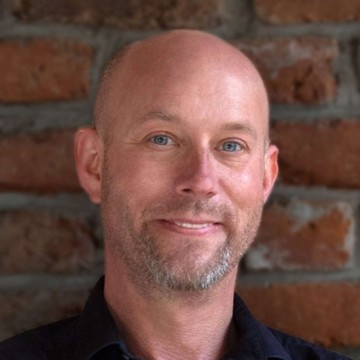
Nov 25, 2024 • 41min
Episode #412: Rewiring Minds: Games, AI, and the Future of Cognitive Health
In this episode of the Crazy Wisdom Podcast, I, Stewart Alsop, sit down with Matt Omernick, a pioneer in leveraging interactive technology for health and cognitive improvement. We explore his journey from traditional game development to creating transformative digital therapeutics, touching on how technology like video games and AI is reshaping cognitive health, creativity, and human potential. Matt also shares his insights into the FDA approval process for these groundbreaking tools, discusses the role of creativity in a tech-driven future, and highlights the importance of ethical AI practices. For those interested in Matt’s work, you can connect with him on LinkedIn to dive deeper into his ongoing projects.Check out this GPT we trained on the conversation!Timestamps00:00 Introduction and Guest Welcome00:29 Neuralink and Cognitive Impairment01:20 The Cognitive Crisis and Technology's Role03:18 Digital Therapeutics and AI Biometrics03:44 AI Augmentation and Creativity05:33 The Future of AI and Creativity08:02 Closed Loop Systems and Personalized Technology11:42 Generative AI and Ethical Considerations16:20 Art, Suffering, and Creativity19:30 The Human Element in AI20:10 Adaptability: Humanity's Strength and Weakness22:05 The Role of AI in Creative Fields23:08 Fragmentation and Tribalism in the Age of AI24:46 Evolutionary Biology and Human Adaptation28:14 Digital Health and Therapeutics30:33 Navigating the FDA Approval Process35:46 The Future of AI in Bureaucracy39:37 Conclusion and Contact InformationKey InsightsTechnology as a Tool for Cognitive Health: Matt Omernick highlights the transformative potential of interactive technologies like video games in addressing cognitive impairments. Once stigmatized, video games are now proving to be powerful tools in promoting mental health, supported by rigorous scientific evidence. These innovations open a new frontier in digital therapeutics, making it possible to create adaptive experiences that train the brain and yield measurable, durable improvements in cognitive function.The Role of AI in Creativity and Problem-Solving: AI is reshaping creativity by serving as an augmentation tool rather than a replacement for human ingenuity. Matt draws parallels to the introduction of tools like Photoshop, emphasizing that AI enables artists and creatives to work faster, experiment more, and push boundaries, while still relying on human input to guide its applications. This partnership between humans and AI is a significant shift, particularly in industries like gaming and digital art.The Cognitive Crisis of Overstimulation: Modern society faces a cognitive crisis driven by unprecedented levels of stimulation from technology. Matt discusses how primitive brain structures are struggling to cope with the demands of a hyper-connected world. However, instead of retreating from technology, he advocates leveraging it intelligently to create systems that help humans adapt and thrive in this new environment.FDA Approval as a Milestone for Digital Therapeutics: Achieving FDA approval for a video game-based therapeutic was a groundbreaking step, validating the legitimacy of this new form of medicine. The process involved creating a new regulatory framework tailored to digital products, blending the rigor of traditional clinical trials with the flexibility of software development. This achievement paves the way for future innovations in digital health.The Power of Closed-Loop Feedback Systems: Closed-loop systems, which continuously measure and adapt based on user input, are central to the success of digital therapeutics and other adaptive technologies. Matt explains how this approach not only optimizes cognitive training but also offers a model for creating highly personalized and effective interventions in health and wellness.Ethics and Responsibility in AI Development: Matt underscores the critical need for ethical practices in AI, particularly in creative fields. Protecting artists’ rights, ensuring transparency in how AI is trained, and addressing potential biases are essential for fostering a future where technology serves humanity’s best interests without exploitation or harm.A Hopeful Vision for the Future: Despite potential dystopian outcomes, Matt remains optimistic about the trajectory of technology. He believes humanity’s adaptability and creativity will guide us toward solutions that enhance our lives and address major challenges. His work exemplifies this optimism, focusing on creating tools that blend technological sophistication with ethical and human-centered design principles.

Nov 22, 2024 • 49min
Episode #411: From Gutenberg to Jobs: The Threads of Technological Evolution
On this episode of the Crazy Wisdom Podcast, host Stewart Alsop interviews Tim Bajarin, Chairman of Creative Strategies, Inc., for a fascinating exploration of the evolution of technology. The conversation spans Tim’s early career during the dawn of personal computing in the 1980s, historical reflections on pivotal inventions like Gutenberg's printing press, the legacy of Xerox PARC, and the rise of Apple’s graphical interface and desktop publishing. They also discuss the human dynamics of innovation, from the tight-knit tech communities of Silicon Valley to parallels with historic institutions like the Royal Society. For more insights into Tim Bajarin’s ongoing work, you can explore his articles on Forbes or visit Creative Strategies at creativestrategies.com.Check out this GPT we trained on the conversation!Timestamps00:00 Introduction and Guest Background00:54 Entering the PC Market in the 1980s05:39 Historical Context and Technological Evolution13:21 The Impact of Desktop Publishing24:54 The Role of Historical Knowledge in Technology38:12 The Influence of British Technological Advancements47:30 Conclusion and Final ThoughtsKey InsightsThe Historical Context of Innovation is Crucial for Understanding Technology's Future: Tim Bajarin emphasizes that to forecast the future of technology, one must understand its historical roots. His career as an analyst has been informed by studying transformative moments like Gutenberg’s printing press and innovations in the 1800s, including the Royal Society’s influence on science and technology. This perspective underscores how historical breakthroughs set the stage for modern advancements.The Birth of Personal Computing Was a Collaborative Effort: Bajarin’s entry into the tech industry coincided with the IBM PC launch in 1981. He became one of the first PC analysts, working with companies like Compaq, Dell, and Apple. The development of personal computing was fueled by close-knit communities of engineers and innovators who shared ideas, much like the collaborative environment of historical groups like the Royal Society.Xerox PARC’s Innovations Were the Bedrock for Modern Computing: The role of Xerox PARC in shaping today’s computing landscape is highlighted as pivotal. Bajarin recounts their invention of the graphical user interface (GUI) and the mouse, which were foundational for Apple’s Mac. Although Xerox didn’t capitalize on these ideas, their contributions enabled Steve Jobs and others to build the computing paradigms we use today.Desktop Publishing Revolutionized Communication and Creativity: Bajarin predicted the desktop publishing boom, thanks to innovations like Apple’s laser printer, PageMaker software, and PostScript technology. These advancements transformed the publishing industry, allowing individuals and small businesses to create professional-quality content, democratizing access to creative tools.Steve Jobs’ Return to Apple Marked a Turning Point in Design and Vision: When Steve Jobs returned to Apple in 1997, the company was near bankruptcy. Bajarin describes how Jobs refocused Apple on its core customers, introduced innovative industrial design, and created products like the colorful iMac. This redefined how consumers viewed computers, blending functionality with aesthetic appeal and cementing Apple’s market position.The Evolution of Technology is Driven by Both Process and Innovation: Bajarin explains how every major technological leap, from the printing press to the PC, has involved the convergence of innovative devices and refined processes. For instance, advancements in printing presses during the 1800s mirrored the systematic innovations in the tech industry during the 1980s and 1990s.The Role of Community and Networks in Driving Innovation: The episode draws a parallel between the 1980s tech clubs in Silicon Valley and earlier knowledge-sharing networks, such as the letter-writing analysts of Renaissance Italy or the Royal Society. Bajarin illustrates how communities of like-minded individuals, whether in tech or science, have always been instrumental in fostering innovation.

Nov 18, 2024 • 51min
Episode #410: From Space Economies to Spiritual Roots: Technology’s Role in Shaping Humanity
On this episode of the Crazy Wisdom Podcast, Stewart Alsop sits down with Ben Kohlmann, an investment partner at Qubit Capital, to discuss topics ranging from Argentina’s socio-political shifts and libertarian experimentation to frontier technologies like AI, space exploration, and energy abundance. Ben shares his insights on how technology can enhance human flourishing, grounded in both innovation and a philosophical perspective. The conversation touches on everything from cultural and historical shifts to the future of interplanetary economies and the challenges of regulatory frameworks in space. You can connect with Ben on Twitter @BenKohlmann or email him at ben@cubit.capital for more.Check out this GPT we trained on the conversation!Timestamps00:00 Introduction and Guest Welcome00:28 Argentina's Socio-Political Revolution01:34 The Argentinian Experiment and Free Market04:00 Technology, Venture Capital, and Market Dynamics06:06 Argentina's Economic Potential and Challenges08:14 Qubit Capital's Investment Focus09:06 Faith, Technology, and Human Flourishing11:36 The 1960s, Spirituality, and Cultural Shifts19:53 Community, Religion, and Modern Society26:01 AI, Space, and Energy Abundance27:39 Future of Small Modular Reactors27:59 Energy Consumption Trends and AI's Role28:18 Space Economy and Asteroid Mining29:55 Energy Production and Human Flourishing32:25 Solar Power in Space and Data Centers36:46 Asteroid Mining and Space Colonies43:04 Regulatory Challenges and Global Frameworks46:17 Asynchronous Work and Social Media Evolution50:13 Conclusion and Contact InformationKey InsightsThe Libertarian Experiment in Argentina: Ben Kohlmann and Stewart Alsop discuss Argentina's current socio-political shift under Javier Milei, highlighting its potential as a libertarian experiment. They contrast it with historical welfare state policies, reflecting on Argentina’s past prosperity in the late 1800s and exploring the implications of free-market approaches on long-term economic and cultural revitalization.Frontier Technologies as Drivers of Human Flourishing: Ben emphasizes Qubit Capital's focus on frontier technologies like AI, space exploration, and energy abundance, underscoring their role in advancing human flourishing. The conversation connects these innovations to philosophical and theological perspectives, arguing that technology can serve as a bridge to a higher purpose in human development.Energy Abundance as the Foundation for Progress: Energy consumption is highlighted as a critical driver of human and societal progress. The episode explores how nuclear power, space-based solar energy, and other breakthroughs in energy generation and consumption are unlocking new possibilities for innovation, economic growth, and global resilience.The Future of Space Exploration and the Space Economy: A major theme is the transformative potential of space exploration and the burgeoning space economy. From asteroid mining to on-orbit data centers, the episode examines how reducing launch costs and advancing technology can catalyze manufacturing and economic systems in space, leading to unprecedented opportunities.The Role of Failure in Innovation: Drawing parallels between technological and societal experimentation, Ben argues that failure is a necessary precursor to success. Whether it’s in space exploration, national policies, or personal growth, the willingness to take risks and learn from setbacks is presented as a cornerstone of progress.The Fracturing of Social Media and Communities: The conversation touches on the evolving nature of social media, suggesting that global, interconnected platforms are giving way to more tribalistic, niche communities. This shift echoes historical patterns of societal organization and reflects humanity’s inherent need for smaller, more cohesive groups to navigate cultural and generational changes.The Intersection of Technology, Faith, and Society: Ben shares a unique perspective on integrating faith with technology and investment. He posits that both fields share a common goal of enabling human flourishing, arguing that spiritual and technological frameworks can work together to solve pressing global challenges while fostering a sense of purpose and connection.

Nov 15, 2024 • 1h 3min
Episode #409: Civilization 3.0: How Intentional Communities and Crypto Could Transform the World
In this episode, Stewart Alsop talks with San Naidoo, who is developing foundational infrastructure for what he calls Civilization 3.0. San shares his journey from tech entrepreneurship to his life in a rural South African village, covering topics like sacred dance, intentional communities, and composting capitalism. Their conversation explores the decentralization of economic and social systems, the influence of empire culture, and the importance of fostering relational fields as we look toward a regenerative future. To learn more about San's work and updates, you can follow him on Twitter at @regencrypto.Check out this GPT we trained on the conversation!Timestamps00:00 Introduction to the Crazy Wisdom Podcast00:40 Starting a Tech Shop in Argentina02:32 Exploring Sacred Dance and Tango09:04 Building Infrastructure for Civilization 3.010:49 Intentional Communities and Crypto Adventures18:25 Revolutionizing Money and Community Models31:41 Networking and Intentional Communities32:40 Creating a Node and Land Trust33:35 Historical Perspectives on Land and Labor35:34 AI, Productivity, and Modern Slavery38:37 CommuniTrees: Business Models and Regenerative Practices41:30 Crypto, Real World Assets, and Cultural Lag51:23 The Role of Cities in Future Communities55:58 Reflections on Argentina's Agriculture and Economy58:59 The Importance of Relational Fields01:01:16 Conclusion and Final ThoughtsKey InsightsThe Vision of Civilization 3.0: San Naidoo explores the concept of Civilization 3.0, an evolution toward a regenerative, interdependent society. This future civilization is one that could integrate the community-oriented values of tribal systems with the structural strengths of empire, re-envisioning how communities relate to land, economy, and each other. San’s idea is to foster sustainable, resilient societies through intentional communities that are economically and ecologically regenerative.Intentional Communities and the Challenges of Cohesion: Reflecting on his own experience with intentional communities in Argentina and South Africa, San notes that successful communities require strong foundations in shared values and clear communication. The biggest obstacle is often navigating human dynamics and creating frameworks that support clear conflict resolution, goal alignment, and harmonious co-existence. His experiences highlight the importance of vision, shared meaning, and structured processes for sustainable community building.Composting Capitalism as a Path to Regenerative Wealth: In his work, San advocates for "composting capitalism," a playful yet powerful concept of redirecting resources from the current economic system to nurture regenerative systems. His idea focuses on investing in land and initiatives that prioritize ecological and social health, thereby creating wealth that fosters life and interdependence rather than extraction and profit for profit’s sake.Tokenization of Land Through Fractionalized Real Estate: One innovative approach San proposes is using crypto and blockchain technology to fractionalize real estate, allowing individuals to invest in regenerative land projects. Through tokens representing square meters of land stewarded by intentional communities, investors could support regenerative land trusts while sharing in the long-term value of community-centered land development. This concept brings finance closer to tangible ecological projects, offering a sustainable model that rewards both investors and the planet.The Power of Relational Fields in Sustainable Culture: A central theme in San’s vision is the “relational field”—the depth and quality of relationships among individuals and communities. He believes that fostering strong, meaningful connections is key to a regenerative society, where people interact as interconnected individuals rather than isolated consumers. This concept highlights the need to create environments where mutual care and support are embedded in daily interactions, contrasting with the transactional nature of mainstream culture.The Edge Walkers’ Role in Cultural Transformation: San speaks about "edge walkers"—individuals and projects at the fringes of the mainstream who are experimenting with new cultural, economic, and ecological paradigms. While often overshadowed by louder, profit-driven entities within crypto and tech, edge walkers embody the regenerative culture that could eventually replace unsustainable systems. Networking these innovators could strengthen and accelerate systemic change.A Decentralized, Harmonized Future Beyond Empire: Looking at history, San contrasts the hierarchical, extractive systems of empire with the collaborative, interdependent nature of tribal cultures. As society shifts away from centralized power structures, he suggests a planetary culture that integrates the strengths of both. This future civilization would honor the planet’s interconnectedness, leveraging decentralized networks to sustain a complex, self-regulating, and resilient ecosystem that could avoid collapse and facilitate lasting well-being.
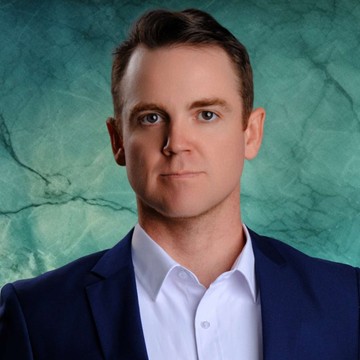
Nov 11, 2024 • 1h 6min
Episode #408: The Consciousness Matrix: Decoding Life’s Quantum Blueprint
In this Crazy Wisdom episode, Stewart Alsop dives into a compelling conversation with guest Sterling Cooley, exploring Sterling's research and theories on the vagus nerve, ultrasound, and consciousness. Sterling introduces his Niemertin Vagus Nerve Origin Theory and the role of microtubules in consciousness. The two discuss scientific materialism, quantum mechanics, and xenon’s potential to unlock new understanding in consciousness studies. This episode takes listeners through groundbreaking ideas on the connections between consciousness and cellular structures, and to learn more, visit Sterling's work at Ultraskool.com.Check out this GPT we trained on the conversation!Timestamps00:00 Introduction to the Crazy Wisdom Podcast00:39 Exploring the Vagus Nerve and Yoga01:22 Diving into Xenon and Consciousness06:29 Understanding Microtubules11:18 Quantum Mechanics and Microtubules22:34 The Role of Microtubules in Consciousness27:28 Astrobiology and the Origins of Life33:22 COVID-19 and Microtubules34:53 Introduction to Filopodia and COVID Mechanisms36:47 Exploring Consciousness in Microtubules37:49 Questioning the Neuronal Model of Consciousness40:27 The Role of Microtubules in Consciousness45:35 The Power of Intention and Healing50:42 Personal Experiences with Chronic Pain and Healing52:13 The Potential of Xenon in Healing01:04:21 Concluding Thoughts and ResourcesKey InsightsThe Vagus Nerve and Consciousness: Sterling Cooley introduces the "Niemertin Vagus Nerve Origin Theory," exploring the vagus nerve as a significant player in human consciousness. Through his research, he posits that the vagus nerve may have untapped potential to influence states of consciousness when stimulated by ultrasound, suggesting a direct pathway between physical body processes and awareness.Microtubules as a Model for Consciousness: Cooley discusses the Orchestrated Objective Reduction (ORCOR) theory, originally developed by Stuart Hameroff and Roger Penrose, which views microtubules as a potential site for consciousness within cells. This model contrasts sharply with the traditional neuronal view, arguing that consciousness could be emerging from sub-cellular structures, rather than solely from synaptic interactions.Xenon’s Unexplored Role in Consciousness and Pain Relief: Throughout the conversation, Cooley explains his interest in xenon gas for its unusual effects on consciousness and physical pain. Known for its anesthetic properties, xenon interacts with microtubules in ways that could reveal more about how consciousness works at a cellular level. He shares personal experiences with xenon as profoundly healing and consciousness-expanding, a combination he believes could be used in new therapeutic models.Gratitude Meditation and HRV Enhancement: Cooley recounts how a form of gratitude-based meditation has been shown to significantly raise Heart Rate Variability (HRV), a key indicator of autonomic nervous system balance. By coupling gratitude with anesthetics like ketamine, individuals may enter states of heightened well-being and healing, providing a bridge between subjective states and measurable physiological effects.The Potential of Conscious Intention for Healing: Cooley suggests that if consciousness operates through microtubules, then conscious intention may have a tangible effect on physical healing. He speculates that specific mindsets, especially gratitude, could interact with bodily processes at a fundamental level. This view ties into long-standing yet often-dismissed ideas around the mind-body connection and its implications for health.Quantum Mechanics and Cellular Intelligence: Discussing the quantum behavior of microtubules, Cooley points out their ability to interface with quantum-level processes. This quantum component, according to ORCOR, is where consciousness may arise and could allow cells to possess a form of “intelligence” or agency. This insight proposes a model of cellular life as potentially sentient, challenging conventional biological views.The Commercial and Academic Resistance to New Theories of Consciousness: Finally, Cooley critiques the scientific community's resistance to non-traditional models of consciousness, attributing it to entrenched financial and academic interests. He suggests that the popular synaptic model persists due to its alignment with pharmacological approaches, which are lucrative but may overlook more holistic explanations of consciousness and agency.

Nov 8, 2024 • 58min
Episode #407: Transhumanism Lite: Using Urbit and Spaced Repetition to Hack Your Brain, Not Replace It
In this episode of Crazy Wisdom, Stewart Alsop hosts ~littel-wolfur to explore spaced repetition, the dynamics of learning algorithms, and the philosophy behind Urbit. They break down Urbit’s promise as a peer-to-peer platform with roots in a deep, almost otherworldly commitment to resilience and a long time horizon. Alongside ~littel-wolfur’s take on memory as the strange balance of laziness and persistence, they dig into shrubbery, Urbit's latest namespace innovation, and the challenge of creating tools that last. From generational shifts to the philosophy of technology, Stewart and ~littel-wolfur contemplate whether Urbit’s rebellious craftsmanship might be the foundation for a more enduring internet. You can connect with ~littel-wolfur on Twitter.Check out this GPT we trained on the conversation!Timestamps00:00 Introduction to the Crazy Wisdom Podcast00:22 Understanding Spaced Repetition01:39 Personal Experiences with Spaced Repetition04:08 Challenges in Spaced Repetition Software06:45 Building a Flashcard App on Urbit09:03 Introduction to Shrubbery on Urbit13:26 The State of Urbit and Its Future22:01 The Long-Term Vision of Urbit and Bitcoin28:37 Balancing Internet Time with Parenthood29:37 Challenges of Urbit's Ease of Use30:22 New Blood in the Urbit Community31:15 Building Communities on Urbit32:38 Twitter's Complexities and Elon Musk's Influence41:02 AI's Role in Software Development49:52 Transhumanism and AI Art54:50 The Future of Craftsmanship in Programming55:45 Conclusion and Contact InformationKey InsightsThe Power and Paradox of Spaced Repetition: Stewart and ~littel-wolfur discuss spaced repetition as an ingenious blend of laziness and persistence. By setting reminders to review information just before it's forgotten, spaced repetition acts as an effortless yet powerful memory tool. Although the practice demands daily discipline, it becomes an invaluable mechanism for retaining knowledge across vast timescales.SuperMemo and Incremental Reading: ~littel-wolfur shares his experience with SuperMemo, the original spaced repetition software that takes the method even further. SuperMemo’s “incremental reading” allows users to gradually extract information from lengthy texts, breaking down complex learning into manageable, spaced chunks. For ~littel-wolfur, this approach goes beyond mere memorization; it turns learning into an immersive, long-term commitment.The Urbit Experiment: Urbit, a decentralized peer-to-peer network and OS, represents a radical rethinking of the internet. Stewart and ~littel-wolfur examine Urbit’s potential as a platform where users truly own and control their data, echoing ideals of early Web 1.0. As the “long-haul project” of the tech world, Urbit cultivates an almost timeless ethos, making it as much a social experiment as a computing system.Shrubbery and Namespace Innovation: A core element of Urbit, “shrubbery” introduces a namespace that enables users to organize, connect, and retrieve information from across their digital universe. ~littel-wolfur explains how shrubbery allows users to link pieces of data like conversation notes, wikis, and documents, making it a versatile learning platform on Urbit. The elegance of this integration hints at a future internet where information can be personalized and seamlessly connected.Craftsmanship and Digital Resilience: ~littel-wolfur and Stewart touch on the fading art of craftsmanship in tech, which often gets lost in the layers of abstractions that modern software relies on. For ~littel-wolfur, coding on Urbit feels like working in a digital woodshop, where the focus is on intentionality and precision rather than flashy or disposable tech. This philosophy of craftsmanship offers a refreshing take on the art of creation in software, hinting at the durability and authenticity Urbit hopes to embody.AI’s Limitations and Overconfidence Trap: The episode also highlights the limitations of AI, especially when it encourages laziness or over-reliance. While AI can help automate routine tasks, ~littel-wolfur warns of its tendency to produce fragile, overly complex solutions that unravel under scrutiny. They caution that true understanding comes not from shortcuts, but from engaging deeply with the work—a point that resonates with their belief in disciplined learning practices like spaced repetition.The Value of Optimism and Long Time Horizons: Amid a society obsessed with quick wins and rapid monetization, Stewart and ~littel-wolfur see Urbit’s culture as a refreshing outlier, filled with builders who value curiosity and long-term thinking. This “thousand-year mindset” stands in contrast to much of the tech industry, where projects are often driven by immediate financial returns. By embracing a philosophy that resists the pressure for instant success, Urbit aligns itself with a vision of digital infrastructure that, rather than fueling transient trends, aims to be a lasting foundation for generations to come.
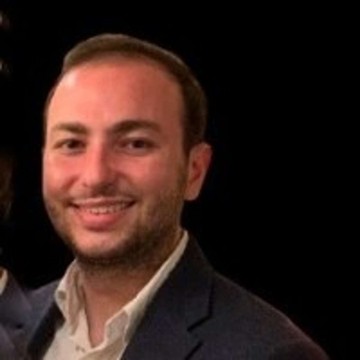
Nov 4, 2024 • 57min
Episode #406: The Productive Side of AI: Moving from Consumption to Creation
In this episode of the Crazy Wisdom Podcast, host Stewart Alsop welcomes Leon Coe, founder of Amplify Intelligence, to explore the cutting edge of AI and its practical applications in workflows, agentic systems, and beyond. They discuss the evolution of autonomous agents, the shift toward combining traditional code with large language models, and how these integrations are reshaping both business processes and personal productivity. The conversation touches on the potential for AI to transform repetitive tasks, the role of probabilistic versus deterministic AI models, and Leon’s perspective on the future of a more AI-enabled economy. Leon also shares thoughts on balancing creativity with automation, especially for non-technical users, while Stewart probes the deeper implications of our increasingly AI-driven world. To learn more about Leon’s work, visit Amplify Intelligence or connect with him on Twitter @LeonJCoe.Check out this GPT we trained on the conversation!Timestamps00:00 Introduction to the Crazy Wisdom Podcast00:26 Understanding AI Agents02:51 Agentic Workflows vs. Autonomous Agents04:31 Productizing Large Language Models06:56 Challenges and Innovations in AI Adoption10:15 Enhancing Workflows with AI18:30 Technical Insights and Practical Applications25:29 Exploring Future Shock and AI Adoption27:17 The Economic Impact of AI29:01 The Evolution of AI Models31:01 Voice AI and Its Potential34:21 The Role of Social Media in AI Adoption41:01 Historical Perspectives on Media and Misinformation44:28 The Future of Media and AI45:30 Navigating the Digital Age with AI55:10 Concluding Thoughts and Future DiscussionsKey InsightsRedefining AI Agents: Leon introduces a unique perspective on AI agents, emphasizing that they don’t have to be fully autonomous or self-directing to be useful. He defines an AI agent as simply the combination of large language models (LLMs) with traditional code, capable of producing workflows and taking actions. This broader view allows businesses to leverage agentic technology today by integrating LLMs into workflows in a controlled, deterministic way, similar to tools like Zapier but with enhanced intelligence.Adoption Challenges for Non-Technical Users: One of the biggest challenges in AI adoption, Leon argues, is bridging the gap between technical and non-technical users. Programmers and those familiar with building digital workflows can push AI’s capabilities further by crafting complex queries and structured workflows. However, non-technical users often lack this mental framework, so introducing them to AI involves not only teaching specific tools but also new ways of conceptualizing and using automation to make their lives easier.AI for Personal Productivity and Business Efficiency: Leon explains how AI can revolutionize business workflows by injecting intelligence at different points. For example, an AI-enhanced workflow could automatically extract key insights from meetings, turn transcripts into actionable summaries, and even create custom reports with minimal human intervention. This not only saves time but also minimizes the risk of tasks falling through the cracks, which can improve productivity across entire organizations.Cost Optimization and Model Selection in AI Workflows: In building effective AI applications, choosing the right model and managing costs are essential. Leon illustrates how selecting cheaper, high-performance models, like Gemini Flash instead of more expensive alternatives, can make workflows more efficient and cost-effective. By carefully balancing speed, token limits, and other parameters, companies can optimize their AI usage and control expenses without sacrificing performance.The Future of Databases and Dynamic Information: The conversation explores a potentially transformative shift in data storage and retrieval, where static databases might be replaced by API calls to AI models that generate information dynamically. This approach could allow for more flexible and up-to-date data management, where only critical user data is stored traditionally, and the rest is created on-demand, reducing the need for static databases.Media Evolution and Personalized AI: Leon discusses how AI has the potential to shape media in unprecedented ways by generating hyper-personalized content for users, contrasting with the traditional, one-size-fits-all TV experience. As AI takes media personalization to new levels, it could further fragment audiences, changing how we relate to information and even how we form identities, which were once rooted in collective media experiences.Balancing Consumption and Creation in the Digital Age: Stewart and Leon share insights on moving from passive content consumption to active creation with AI tools. By harnessing AI as a productive force, users can redefine their relationship with digital media, turning social platforms into educational or note-taking spaces rather than time-sinks. Leon’s experience with LinkedIn, where he engages by sharing valuable insights rather than merely consuming content, exemplifies this shift, suggesting that AI’s real value may lie in its ability to empower individuals to create rather than consume.

Nov 1, 2024 • 55min
Episode #405: The New Digital Nomad Dilemma: Financial Advice for an Untethered Life
In this episode of Crazy Wisdom Podcast, Stewart Alsop is joined by Jenna Biancavilla, a multi-entrepreneur and founder in financial services and tech. They discuss Jenna’s experience navigating complex regulatory landscapes in finance, her insights into global work dynamics, and her unique approach to asset management for business owners and families. Stewart and Jenna also cover the challenges of building a tech platform from the ground up, exploring cultural and logistical hurdles along the way. You can check out Jenna’s latest venture at BeSvvy.com where she connects clients with trusted advisors.Check out this GPT we trained on the conversation!Timestamps00:00 Introduction to the Crazy Wisdom Podcast01:21 Navigating Financial Regulations and Borders02:56 The Complexities of State and Federal Regulations07:45 Philosophical Insights on Business and Identity12:53 The Role of Technology in Financial Services19:17 Building a Trustworthy Financial Platform26:14 Exploring New Technologies in Financial Planning27:58 Remote Work in a Regulated Industry29:17 Excitement for Future Business Growth31:52 Valuing and Scaling Businesses33:16 Challenges of Building a Technology Company41:26 Cross-Border Financial Advising44:20 Cryptocurrency and Regulatory Risks49:17 Future Plans and Market ExpansionKey InsightsNavigating Regulation as a Financial Advisor: Jenna explains the layers of regulatory complexity that financial advisors face, especially those operating across state and national borders. Being SEC-registered allows her firm to operate more freely within the U.S., but international borders introduce significant restrictions. These regulations are in place to protect clients but can also make the advisor’s job challenging, as they need to register each office location where they meet clients, which complicates the lives of both advisors and clients in a globally mobile world.The Rise of Digital Nomadism and Its Challenges in Finance: Stewart and Jenna discuss the impact of digital nomadism and remote work, particularly on regulated industries like financial services. Jenna shares that many business owners and wealthy clients are interested in moving states or even countries to optimize taxes and enjoy greater mobility, but that this lifestyle doesn’t always align well with the rigid regulatory framework that advisors have to navigate.The Emotional Side of Exit Planning: Jenna describes the psychological transition many business owners face when preparing to exit their companies. For many, their business is intertwined with their identity, and letting go can lead to self-sabotage if not handled well. To support clients through this, Jenna often brings in life coaches and therapists, emphasizing that financial planning is often also about personal and emotional alignment, not just numbers.Embracing Technology and AI in Finance, Carefully: While Jenna uses technology extensively in her businesses, she remains cautious, particularly in the finance arm, where accuracy is paramount. In her view, the promise of robo-advisors and AI in financial planning has not yet replaced the need for human intuition and oversight, although AI is helpful in client communication training for new advisors and for content creation in marketing.Building a Tech Platform for Trustworthy Financial Advice: Jenna’s second business, BeSvvy.com, is a tech platform designed to help clients find trustworthy advisors. The platform uses a blend of algorithms and human vetting to ensure advisors are not only certified but aligned with clients’ best interests. Jenna’s approach contrasts with relying solely on regulatory safeguards, aiming to disrupt the industry by using technology to put consumer needs first.Cultural and Logistical Challenges of Outsourced Development: Jenna shares her experience outsourcing early development work to India for cost efficiency but found that cultural misunderstandings and a lack of alignment in vision became barriers. This experience taught her the importance of communication and trust in development partnerships. For version two of BeSvvy.com, Jenna has moved development to a U.S.-based team, allowing for more direct oversight and fewer cultural barriers.A Pragmatic Approach to Scaling a Technology Business: Jenna has opted for a measured, profitable approach to scaling BeSvvy.com, rather than pursuing rapid, venture-funded expansion. Recognizing the challenges of building a marketplace, she sees slow, steady growth as the best way to balance quality with business sustainability, contrasting with the traditional “burn rate” model of many tech startups.


